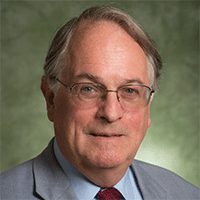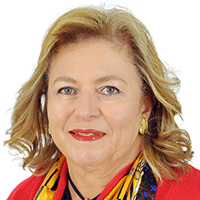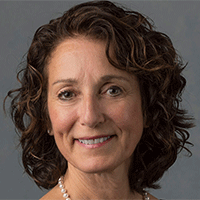
Monday, November 18, 8:00 – 9:00am
Continental Breakfast: 7:30 – 8:00am
Evelyn Wang, Ph.D.
Director
Advanced Research Products Agency-Energy (ARPA-E)
Keynote Title: Forging A Disruptive Global Energy System: A Vision for a Sustainable Future
Abstract: The realization of a net-zero world by 2050 requires a global energy revolution that must be completed within a generation. The energy grid of the future should deliver power reliably, on demand, and at a pace that meets the world’s rising needs, all while significantly reducing our dependence on fossil fuels. In this talk, Dr. Wang will share a vision of our energy future that requires disruptive technologies to create an energy landscape that is dramatically different from the one we know today. Three goals are essential to this vision:
- Abundant greenhouse gas (GHG)-free primary energy.
- An intermodal energy superhighway that accommodates diversified forms of GHG-free primary energy.
- An abundant and renewable carbon transition that addresses projected demand for polymers and other carbon-based materials.
Taken together, these goals offer a glimpse into a novel and robust global energy system that exceeds the needs of future generations while respecting the planetary environment we depend on. Dr. Wang will discuss examples of promising technology areas and advancements that align with this vision. Meeting these goals by 2050, however, necessitates significant development and deployment of disruptive energy technologies at an unparalleled speed and scale.
Biography: Dr. Evelyn N. Wang currently serves as the Director at the Advanced Research Projects Agency-Energy (ARPA-E), where she leads the Agency’s development, launch, and execution of high-risk, high-reward energy research and development programs.
Prior to joining ARPA-E, Dr. Wang served as the Ford Professor of Engineering and Head of the Department of Mechanical Engineering at Massachusetts Institute of Technology (MIT). During her time at MIT, she focused on thermal management, thermal energy conversion and storage, and water harvesting and purification.
Dr. Wang was previously the Associate Director of the MIT Solid-State Solar-Thermal Energy Conversion Center, a DOE Energy Frontiers Research Center. Earlier in her career, Dr. Wang worked as a postdoctoral researcher at Bell Laboratories, Alcatel-Lucent and as a consultant for the Defense Science Study Group, where she advocated for collaboration between academia and national defense to solve issues of national security.
Dr. Wang holds a Ph.D. in Mechanical Engineering from Stanford University. She also received an M.S. in Mechanical Engineering from Stanford University and a B.S. in Mechanical Engineering from MIT. She is a Fellow of the American Society of Mechanical Engineers, American Association for the Advancement of Science, and the American Academy of Arts and Sciences.
Sponsored By:


Tuesday, November 19, 8:00 – 9:30am
Continental Breakfast: 7:30 – 8:00am
M. Stanley Whittingham FRS, Ph.D.
Nobel Prize in Chemistry, 2019 Recipient
Distinguished Professor of Chemistry, Founding Director
NECCES and Chemistry Department
Binghamton University, SUNY
ASME 2024 Richard J. Goldstein Energy Lecture Award Recipient
Keynote Title: Li Batteries: 50 Years Old and the Future Challenges for an American Based Industry
Abstract: The Nobel Committee citation read: “They have laid the foundation of a wireless, fossil fuel-free society, and are of the greatest benefit to humankind.” Now the world needs to take action. Although lithium batteries celebrated their 50th anniversary in 2022, they still achieve only 25% of their theoretical energy density. Even at that level, they now dominate portable energy storage. The dominant anode and cathode today are graphitic carbon and the layered NMC oxides, LI[NiMnCoAl]O2. Both need improving. We must push the chemistry to its limits. Ten-year lifetimes demand 99.95% reaction selectivity.
Alternatives to Li-NMC cells will also be discussed, including the phosphates, with also a discussion of what is very technically and/or politically challenging and maybe not viable in an attempt to correct some of the exponential hype in the battery energy storage arena. A key challenge in the Western world is to build a sustainable supply chain and manufacturing capability that leapfrogs the present 30-year old technology. We need to stop building new “old gigafactories” in North America.
Biography: Stan Whittingham is a Distinguished Professor of Chemistry and Materials Science and Engineering at Binghamton University. Dr. Whittingham was named a Knight Bachelor "for his Services to Research in Chemistry" as part of King Charles' June 2024 official birthday honours list. This honor entitled him to be known as Sir Stanley or Sir Stanley Whittingham. He was the 2019 Chemistry Nobel Laureate for the discovery of lithium rechargeable batteries, and the 2023 VinFutures $3M Grand Prize winner. He is a member of the National Academy of Engineering and Fellow of The Royal Society. He presently leads the Battery-NY $113M economic development effort, and is the Chief Innovation Officer of the recently awarded NSF Upstate New York Energy Storage Engine. He is a founding member of NYBEST, and serves on the Board as Vice-Chair for Research, and Chief Scientific Officer of NAATBatt.

Thursday, November 21, 8:00 – 8:45am
Continental Breakfast: 7:30 – 8:00am
Madiha El Mehelmy Kotb
Retired
ASME President (2013-2014)
2024 Ralph Coats Roe Medal Recipient
Keynote Title: Dream: How an Unconventional Path to Engineering Can Change the World
The Ralph Coats Roe medal was established in 1972 to recognize outstanding contributions toward a better public understanding and appreciation of the engineer’s worth to contemporary society.
Abstract: Do dreams mean anything? From the lush banks of the River Nile of Egypt; home to the stoic eternal Pyramids of Giza and my younger self, then unexpectedly moving to Canada on the other side of the world, my life took so many mind-boggling twists and turns that were at times almost impossible to comprehend. But In Canada my dreams and aspirations, relentless hard work successfully culminated in me becoming a mechanical engineer, then the Chief Boiler and Pressure Vessel Inspectors of Québec ; Vice President Conformity Assessment of ASME, serving of the Board of Governors of ASME and as its 132ndPresident, acting as the Lead Volunteer of Engineering for Change E4C, contributing a Chapter in the Book ‘’ Daughters of the Nile – Egyptian Women Changing their World”, published in English then translated into Arabic and I trust that there are more professional and personal rewards still to come… This morning, I am eager to share my journey and to tell you YES, you can live your Dream, the dream you actually never had!!! We can all make a difference and make the world a better place.
Biography: Madiha El Mehelmy Kotb, retired engineer and veteran of the Provincial Government of Quebec, is honored for outstanding public service and a lifelong commitment and dedication to engineering safety; for leadership and initiative in creating opportunities for sustainable solutions for underserved communities worldwide; and for inspiring future generations of engineers as a speaker and author.
Born in Egypt before relocating to Canada in the 1970s, Ms. Kotb began her career in government service in the 1980s and, during her tenure, served as the Chief Boilers and Pressure Vessels Inspector with the government of Quebec. Ms. Kotb has also served the field of mechanical engineering in multiple ASME roles, most notably working toward the advancement of ASME Safety Standards and Conformity Assessment Programs, serving as a member of the ASME Engineering for Global Development committee, and serving as the 132nd ASME President, the fourth woman and first woman from the Middle East to do so. Additionally, she has been lead volunteer member for Engineering for Change (E4C) and a member of the E4C, LLC management committee.
Ms. Kotb is the recipient of several prior honors, including honorary membership in the National Board of Boiler and Pressure Vessel Inspectors, the CSA Group John Jenkins Award, the 2016 National Board Safety Medal, and the ASME Dedicated Service award. She currently serves on the board of directors of Catapult Design, Inc., a not-for-profit design firm working toward design for social impact.
Ms. Kotb began her engineering education at the American University in Cairo before completing her B.S. and M.S. in mechanical engineering at Concordia University in Montreal. She earned these degrees in 1976 and 1981, respectively.

Thursday, November 21, 12:00 – 1:30pm
Lunch Served 12:00 – 12:30pm
Closing Lunch Keynote
Susan Margulies, Ph.D.
Assistant Director
U.S. National Science Foundation
Keynote Title: Engineering: Transforming our World for a Better Tomorrow
Abstract: Dr. Susan Margulies, Assistant Director for Engineering of the U.S. National Science Foundation, will discuss priorities and opportunities for engineering research and education. NSF funds frontier research and education across all fields of engineering to create fundamental knowledge. NSF support also builds capacity for engineering research and broadens and prepares a diverse future engineering workforce. In partnership with industry and communities across the nation, NSF’s investments lead to innovative technologies and equitable systems for health, sustainability, agriculture, clean energy and water, resilient infrastructure, advanced manufacturing and communication, which will enhance prosperity and quality of life for all Americans.
Biography: Dr. Susan S. Margulies leads the U.S. National Science Foundation's Directorate for Engineering in its mission to transform our world for a better tomorrow by driving discovery, inspiring innovation, enriching education, and accelerating access. The NSF's Engineering Directorate provides over 40 percent of federal funding for fundamental research in engineering at academic institutions, leading to innovative technologies and sustainable impacts in health, agriculture, clean energy and water, resilient infrastructure, advanced manufacturing and communication systems, and many other areas. NSF support also builds the Nation's workforce capacity in engineering and supports the diversity and inclusion of engineers at all career stages. Projects span frontier research to generate new knowledge, problem-driven research to identify new solutions to societal challenges, and application-driven research to translate discoveries to uses that enhance prosperity, equity and quality of life for all Americans.
Margulies joined the NSF as the assistant director for the Directorate for Engineering in August 2021 after leading the Wallace H. Coulter Department of Biomedical Engineering at the Georgia Institute of Technology and Emory University. While on detail at the NSF, she is a professor and Georgia Research Alliance Eminent Scholar at Georgia Tech and Emory. Margulies is internationally recognized for pioneering studies to identify mechanisms underlying brain injuries in children and adolescents and lung injuries associated with mechanical ventilation, leading to improved injury prevention, diagnosis and treatments.
Margulies' transdisciplinary scholarly impact has been recognized by her election as fellow of the American Society of Mechanical Engineers, the Biomedical Engineering Society, and the American Institute for Medical and Biological Engineering, and as a member of the American Academy of Arts and Sciences, the National Academy of Engineering and the National Academy of Medicine.
- Abundant greenhouse gas (GHG)-free primary energy.
- An intermodal energy superhighway that accommodates diversified forms of GHG-free primary energy.
- An abundant and renewable carbon transition that addresses projected demand for polymers and other carbon-based materials.